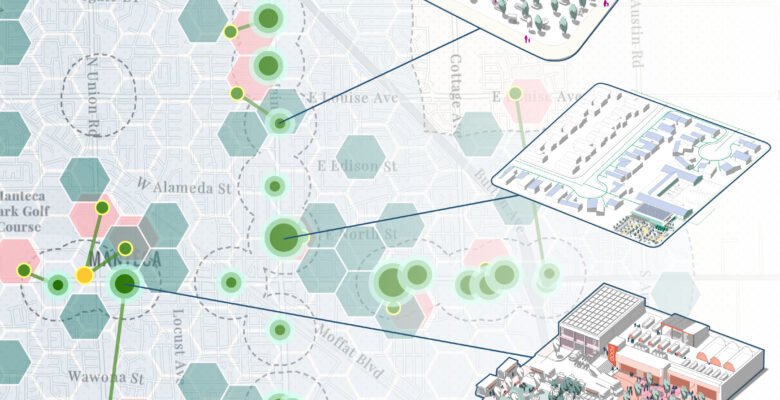This research project proposes a Framework and Toolkit to create a holistic, incremental approach to gas station adaptation & transformation.
Given the current policy timeline of phasing out production of combustible-engine vehicles by 2035 in California and transition to a carbon-free economy nation-wide by 2050, the adaptation scenarios focus on tangible strategies for a near-term transformation, with an eye towards addressing longer-term needs for the communities they serve. These adaptation scenarios explore potential solutions to last mile delivery, resilience of energy system, equal access to goods and services.
This Framework and Toolkit looks at two scales; the city and individual gas station. At the city scale we consider gas station sites as key components of a larger ecosystem of land uses and transportation network. This research project has developed a Spatial Analysis Tool that automates the analysis process to help understand adaptation potentials of each site. At the site and building scale, we consider design interventions that both gradually change and quickly change their appearances and functions within the urban landscape.
Read the full report here.

